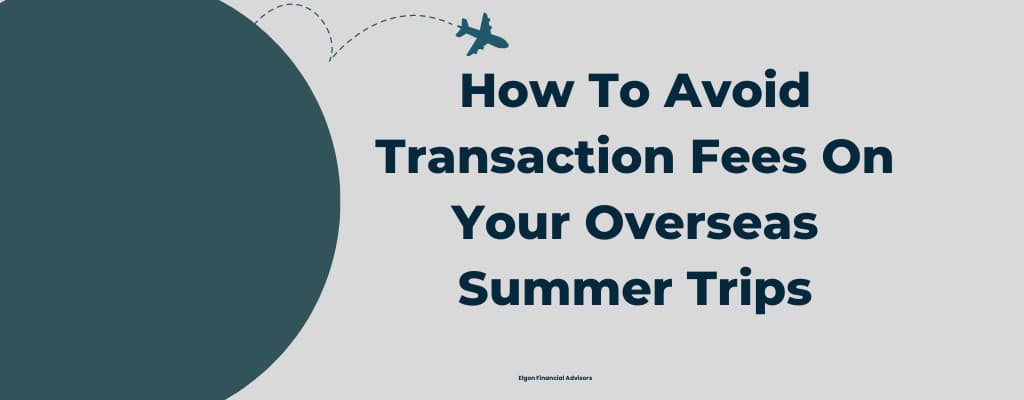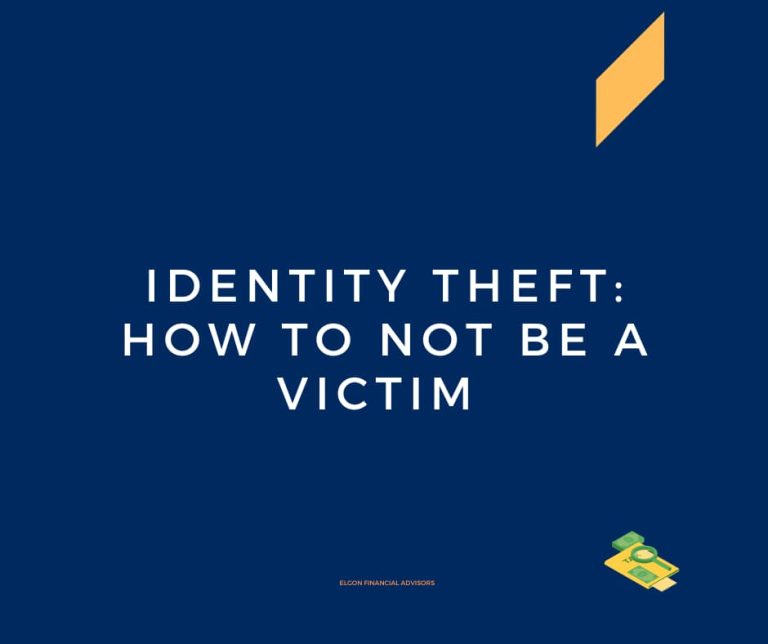In today’s post, I’m going to discuss how to avoid transaction fees on overseas trips.

Don’t let extra unnecessary fees on overseas travel ruin your well-planned summer plans.
Last summer my family and I had a chance to travel overseas for a vacation versus visiting family. It was a chance to explore different destinations, outside of our norm.
Most of our family lives overseas, in different countries, so in the past, we’ve mapped our trips based on visiting folks we haven’t seen in a while.
Because we are familiar with the destinations there were things, we take for granted that I was reminded of on this trip.
We’ve learned and figured out how to operate in countries we normally visit, where everything is somewhat familiar or we have people to help us out. We are pretty good about figuring things out, but now and again, something will catch you by surprise.
So this was a good reminder of how some of the fees you end up paying are completely unnecessary.
So onto how to avoid pesky transaction fees on overseas travel.
Don’t Take The US Passport For Granted – Avoid Visa Fees
The US passport is one of the more powerful passports to own in the world.
It ranks 7th on the Henley Passport Index. Out of the total 195 countries in the world, you can visit about 185 of them without a visa.
This makes overseas travel very accessible for a US passport holder – you can avoid the visa transaction fee and it also means you can travel on short notice.
Take advantage and travel now, don’t wait until you retire. For this post, I’m referring to short-term travel, anywhere from a few days to a couple of weeks.
To Avoid Transaction Fees On Overseas Trips – Choose Your Mode Of Payment Carefully
I’m comfortable using my debit card like a credit card everywhere. But on international trips, it may not be the best choice for some transactions for the following reasons.
A lot of hotels simply won’t take debit cards for a security deposit. This was the case on our trip to Mexico. If you are relying on a debit card for the deposit, the only solution is to pay cash in US dollars.
If you don’t have cash, they’ll conveniently have an ATM, with a terrible exchange rate. More on this later.
Of the ones that take debit cards, they typically put a hold on more money than needed for the deposit. This is cash you won’t have available to use, and it can sometimes take up to 14 days to get the hold released.
If you plan to use a debit card overseas, ensure you understand all the different places where it will be accepted.
Plan on having extra money in your checking account for the hold. In addition, bring extra US dollars on you.
If you plan to use a credit card overseas, ensure it’s one without international or foreign transaction fees, which can be as high as 5%. It’s probably one of the best ways of avoiding transaction fees on your overseas travel/trips.
Some examples of credit cards without foreign transaction fees are Bank of America and Capital One Venture Card.
Avoid Transaction Fees On Overseas Trips – ATM Machines And Fees
On this trip to Mexico, we knew we needed cash in the local currency (pesos), but we had not counted on needing US dollars for the hotel deposit.
They had ATMs that dispensed dollars and some that did pesos both in the hotel and in the surrounding areas.
As a rule, don’t use standalone ATMs, like the ones beside the road.
The hotel ATMs are relatively safe, but they charge you a commission fee ($2 to $3) and a small transaction fee (about $2). Other fees include currency exchange fees and international withdrawal fees.
The most expensive transaction was withdrawing US dollars (cost around $35 to get a couple of hundred US dollars). The lesson, plan ahead, and bring enough cash!
One way to avoid this transaction fee is to use a bank’s ATM, instead of the hotel’s or the roadside one.
The bank’s ATM doesn’t have a commission fee and the transaction fee is also lower.
They are also likely to waive the other fees mentioned above. This is something I have experienced in other countries as well.
The transaction and the commission fees are charged every time you withdrew money, so to avoid the multiple charges, withdrew a big amount once instead of multiple smaller amounts.
Avoid Transaction Fees on Your Overseas Trips – Understand Dynamic Currency Conversion (DCC)
To get the best rates possible, avoid exchanging money at the airport (could be as much as 15% less than what your bank would give you).
Instead, withdraw the money (in the local currency) from your bank via the ATM.
In the process of withdrawing money, one of the questions you get is whether you want to use the exchange rate of the ATM. The best answer is NO since you’ll get a lower rate.
One of the challenges is if the ATM is in the local language which you don’t understand. Google Translate is your friend here.
This is the idea behind dynamic currency conversion (DCC). It’s used at ATMs when you withdraw money or by merchants when you make purchases with a credit card.
It’s an optional service offered at the point of sale, usually in the form of this type of question:
“Would you like to convert the transaction from the local currency to US dollars (your home currency)?”
Another version of the question:
“Would you like to accept the current exchange rate?”
The attraction is that you’ll be able to know exactly how much you are paying in US dollars. There is also the mistaken idea that your bank or credit card company will not charge a foreign transaction fee.
The problem is the local merchants will use a higher conversion rate than the going rate or what your bank at home would have given you., and pocket the difference as fees. I’ve read of this being as high as 7%.
It’s one of the most common ways you end up paying excessive fees. Avoid this and you’ll save on transaction fees.
So, the correct answers to the above questions are NO and DECLINE.
Avoid Transaction Fees On Overseas Trips – Talk To Your Bank Before You Leave The US
Let your bank and your credit card provider know you are going to be outside the country and the dates you plan to be traveling.
This ensures that your foreign transactions are not flagged as fraudulent.
In addition, have them explain what fees you can expect to pay on your transactions.
This is so there are no surprises when you get back. You might also be able to convince them to waive some of the fees or make a plan to handle them.
With the above tips, you’ll spend less and your vacation is likely to be a lot more enjoyable!
Originally published here on the Street.
Need Help With Your US Finances?
Free Financial Assessment
If not ready to start, that’s okay, but please stay on top of our regular updates by email, or by joining here. Sign Up Here.

6 Things to Do
When Starting A Job on H-1B Visa
You are starting a new job on a work visa, there are some critical things, that will set up for financial success in the first 3-6 months. Download the free guide below for the detailed list!
We never spam. By signing up you’ll also receive access to future resources right to your inbox.
Disclaimer: This article is provided for general information and illustration purposes only. Nothing contained in the material constitutes tax advice, a recommendation for the purchase or sale of any security, investment advisory services, or legal advice. I encourage you to consult a financial planner, accountant, and/or legal counsel for advice specific to your situation. Reproduction of this material is prohibited without written permission from Jane Mepham and all rights are reserved. Read the full disclaimer here.






